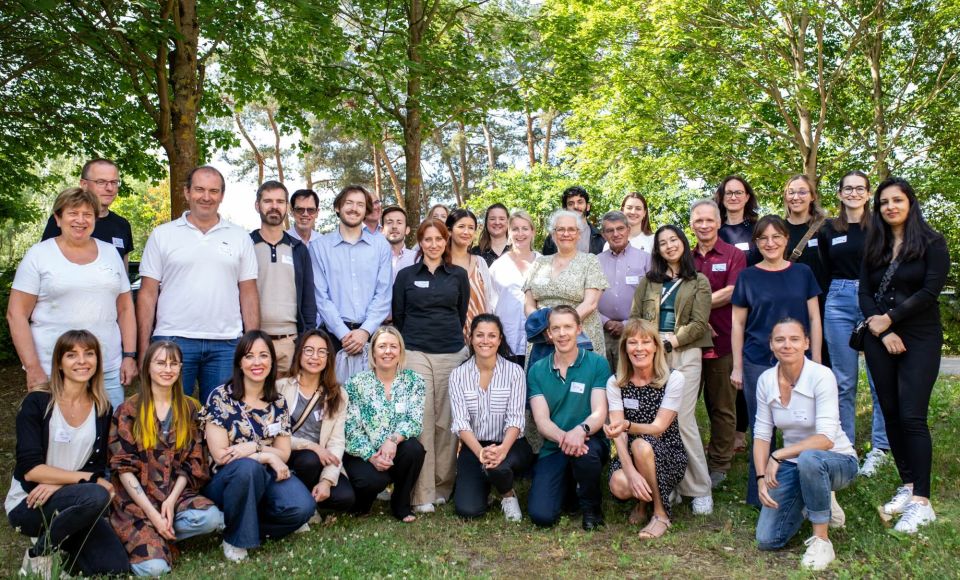
1st July 2025
2025 Obelisk Annual Consortium Meeting
On the 17th and 18th of June, the 2025 Obelisk annual consortium meeting was held at the German Institute of Human Nutrition Potsdam-Rehbruecke (DIfE), in Germany.
Collaborative and Interdisciplinary Approach
During the one-and-a-half-day meeting, the 41 consortium members in attendance presented their progress from the work packages of the five-year project plan. They shared results from various epidemiological studies on early weight development in children and presented strategies for harmonising and integrating data from different cohorts. Updates were also given on the launch of clinical trials and the identification of new genes associated with monogenic obesity.
"The findings regarding the role of G-protein-coupled receptors, including the GLP1 receptor, which is currently central to pharmacological obesity treatment such as semaglutide, were particularly impressive," said Prof. Annette Schürmann. "This could lead to new therapeutic approaches in the future." She added that the presented progress clearly demonstrates the collaborative and interdisciplinary approach to tackling one of today's most pressing public health challenges.
Linking Mouse and Human Data
The DIfE project team, led by Prof. Dr. Annette Schürmann, PD Dr. Heike Vogel, and Dr. Meriem Ouni, also presented its initial results on epigenetic changes in a mouse model that occur during the development of obesity. These changes can be improved by interventions such as intermittent fasting or physical activity in adipose tissue and skeletal muscle. This data was then compared with data from patients living with obesity before and one year after bariatric surgery. "Our data largely comes from basic research and has generated significant interest," said PD Dr. Heike Vogel. "We were even able to initiate further interactions with other project partners from France and Spain." Her team is working to identify signalling pathways that contribute to childhood obesity and combine human genetics, experimental characterisation, and predictive modelling to identify new obesity genes that could be important for future drug development.
At the end of the annual meeting, the project partners discussed further collaboration as well as the goals and milestones outlined in the project plan for the coming year. The next meeting is expected to take place in Paris in May 2026.